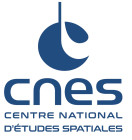Mission
This internship is offered by the “Sustainable Space” division of the Space Situational Awareness department at CNES. The role of this team is to model and study the orbital population, particularly its stability, in order to better understand space and its sustainability.
The proposed internship focuses on a new way of representing space based on mathematical graph theory. This approach, initiated in “The Resident Space Objects Network: a complex system approach for shaping space sustainability, Romano et al. 2023”, consists of modeling space as graphs, with space objects represented as nodes connected by edges. The aim is to use metrics provided by mathematical theory to extract initially hidden information from the graph and, ultimately, gain new insights into space: high-risk areas, possibilities of cascading collisions, identification of the most dangerous objects, etc.
After conducting a literature review, the first step will be to specify the tool needed to create the graph, and then to develop it. It will be necessary to model the orbital population, its temporal evolution, as well as interactions between objects (close approaches, collision probabilities, etc.). The intern will then be expected to develop metrics to extract information from the graph and to interpret it from a space physics perspective. The goal is to characterize the space environment and its stability. The concept of orbital capacity (the maximum allowable occupancy of an orbital region that ensures its sustainable evolution) may also be explored using the tool and metrics system developed.
This internship is an excellent opportunity to work within a dynamic team at the interface of operational space surveillance and academic research.
Profil
We are looking for an engineering or academic profile (Master's degree or equivalent, Bac+4/5) for a 6-month internship. A strong background in space mechanics (orbital mechanics, collision risk, etc.) and an interest in academic research are expected. If the results are satisfactory, a scientific publication may be prepared to promote the work. Programming skills (Python) and mathematical abilities will also be valued.
The internship can be carried out in English or French. Applications are welcome in either language.
The Intership could begin In January 2026

